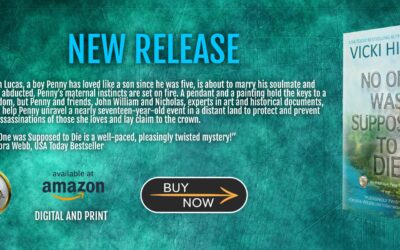WARNING: This is a no-edit zone…
The reason that most writers become writers is that they have something to say that they want others to hear. The format they choose is storytelling. But that need not be limited to the novel.
My point:
Too often the ones who follow us, and who will follow them, are so busy looking forward in their own lives, they have little to no sense of heritage or roots. They don’t have a three-dimensional or developed sense of those from whom they came, and two or three generations later, all that those who came before were, what they believed in and stood for, what they thought and about what they thought–what mattered–is lost to time.
Knowing that’s the case in my own situation–my paternal grandfather died when my dad was a year old and his mother died before his third birthday. He lived his entire life unsure of his birthdate or birthplace. The facts are only a tad better on the maternal side of the family. Anyway, this got me to thinking about legacy and the blessing of knowing yours.
We can’t change the past. What we don’t know and can’t discover is forever lost to time. Some might consider that a blessing, depending on the type of people who came before them. Others find having a colorful history a marvelous thing. Regardless, knowing has benefits that can inspire you. You see similarities in you and your ancestors, peg distinctions and areas in which you’re determined to be different. I think these are good things.
There’s an old saying about the value of knowing where you’ve been assisting you in determining where you want to go. I see logic in that, and value. In my case, as I said, the past can’t be changed. But I can change this for the future.
And offering you this opportunity to do so for those follow you is the reason for this post. Now some might say you must reach a certain age before these things–this sense of personal history–becomes important to you. I say that depends on the person. Some think about those connections and are influenced by them or the lack of them from a very early age. Some don’t. But how do you know which those who follow you will be? You don’t. Can’t. But if you provide that legacy, whenever in their lives they choose to explore it, your legacy blessing will be there for them.
I’m not suggesting that you sit down and write a book about your family history–though that could be an excellent thing and I wouldn’t discourage it. What I am suggestion is a journal.
Many think that this type journal must be filled with facts and figures. I say those are fine, if you know them and wish to include them, but even more valuable is the simple things in life that define you, what matters to you and why. Your life. Your loves and hates and trials and triumphs. These are the stuff of life and the legacy that can be a real blessing.
Something as simple as a food allergy or dislike that one who follows shares gives that follower a sense of connectedness that can help them get through the tough times in life when it seems they’re standing alone. They might feel that way, but inside, deep down where it most matters, they’ll know they’ve never stood alone. All those who came before stand with them.
The more I thought on this, the more worth I saw in doing it. Good for the writer–long after you’re gone you still touch lives, still have a hand in shaping future generations–and good for those future generations because they know their founders, the foundation they’re building their own lives on.
Reach is extended in such ways. To guide and comfort and reassure. And that is a legacy that is indeed a blessing.
Vicki
c2008




